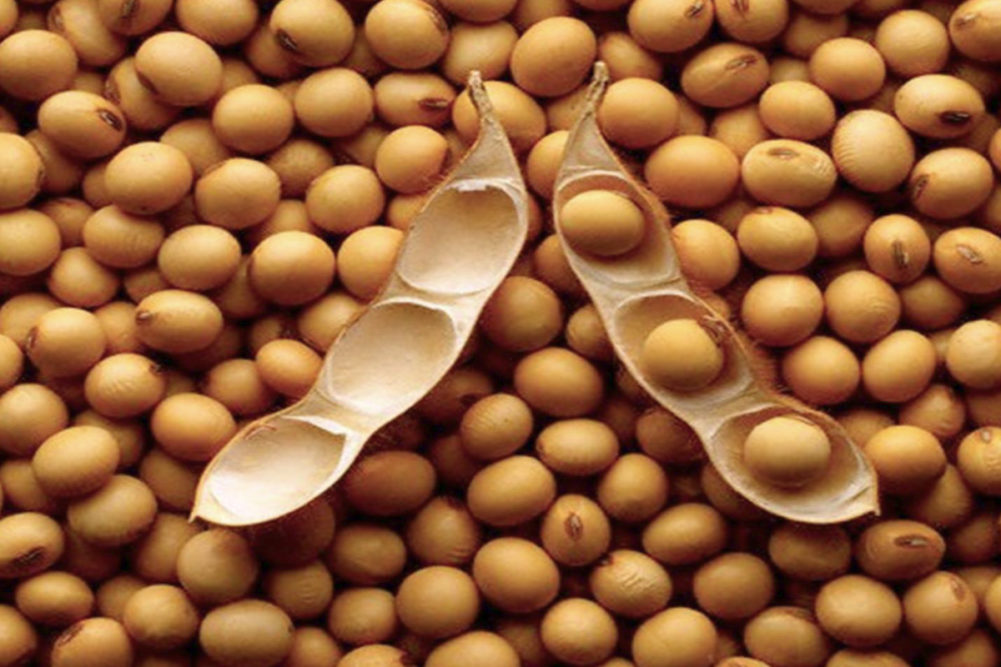ST. LOUIS, MISSOURI, US – Benson Hill, a food technology company active in plant genetics, is becoming a food ingredient supplier as well. Soybean ingredients are available now, and pea ingredients may follow in three years.
Benson Hill in February launched TruVail high-protein soy flour and soy protein concentrate sourced from the company’s high-protein soybeans that are non-GMO. Sustainability benefits for the soy protein concentrate include up to a 70% reduction in water use and up to a 50% reduction in carbon dioxide emissions when compared to commodity soy protein concentrate, according to the company.
“There is a significant window of opportunity open to us now and for the foreseeable future due to favorable market conditions and ongoing supply constraints for high-value soy ingredients, namely white flake, texturized flours and concentrates,” said Matthew B. Crisp, co-founder and chief executive officer, in a March 28 earnings call.
Russia invading Ukraine may make it more difficult to import non-GMO soybean ingredients, he added. More than 90% of the soybeans grown commercially in the United States are GMO.
“A war broke out, and there's a disruption in the food supply chain that's materially impacting the availability of non-GMO, high-oleic oil for which Europe is the largest global consumer and for which Ukraine is one of the largest, if not the largest, producer,” Crisp said. “We can look at our acreage footprint and begin to think about how in the next one or two more seasons we might flex up our production of acres that may satiate some of what we might think of as impending demand.”
In September of 2021 Benson Hill entered into an agreement to acquire a soybean crushing facility from Rose Acre Farms, Seymour, Indiana, US. Capacity at the Seymour facility and a facility in Creston, Iowa, US, gives Benson Hill the ability to scale its soy portfolio within its integrated business model to a range of 250,000 to 500,000 acres, Crisp said. The company is approaching contracting 200,000 cumulative soy acres but has yet to estimate its 2022 acreage.
A yellow pea protein concentrate is on the way, too.
“The R&D team reached a critical milestone late last year when we achieved an important product specification for our first proprietary yellow pea protein concentrate ingredient,” Crisp said. “These results came from a successful 2021 testing and represent a validated protein level in the PPC between 61% and 65%, which is suitable for texturization of the ingredient for products for plant-based food markets. This validation paves the way for us to initiate our first commercial plantings of our proprietary yellow pea varieties in 2024 and to commence commercialization of the resulting pea protein concentrate in 2025.”
St. Louis-based Benson Hill achieved revenues of $147 million in the year ended Dec. 31, 2021, which were up 29% from $114 million in the previous fiscal year. Excluding $14 million in revenues from a barley business divested in October 2020, revenues increased 47%. A net loss of $126 million compared to a net loss of $67 million in the previous fiscal year. Operating expenses increased to $122 million from $72 million.
In the company’s Ingredients segment, revenues jumped 55% to $91 million from $59 million. Benson Hill in 2021 introduced soybeans, soybean oil and soybean meal products, which generated revenues of $38 million compared to $6 million in 2020.
In the fourth quarter, Benson Hill recorded a loss of $42 million, which compared with a loss of $25 million in the previous year’s fourth quarter, and revenues of $44 million, which were up 86% from $24 million.
Benson Hill in 2022 expects revenues in a range of $315 million to $350 million, including revenues in a range of $250 million to $270 million within the Ingredients segment. A loss in a range of $148 million to $153 million is expected in 2022.






